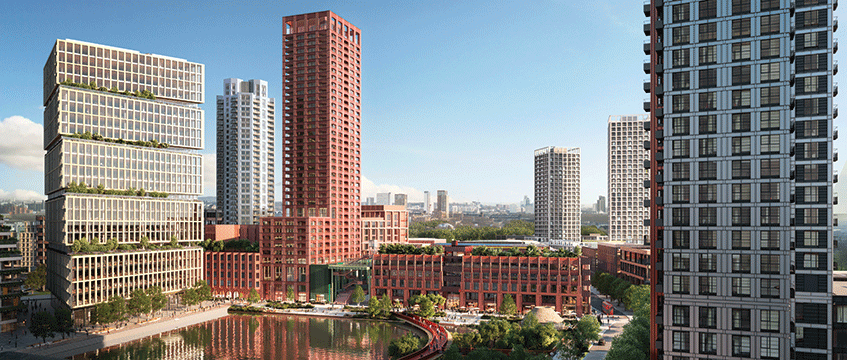British Land has suffered a £1bn loss as operational strength was offset by falling values.
The £1.038bn IFRS loss follows a £965m profit last year, with a 12.3% fall in values taking the portfolio to £8.9bn from last year’s £10.46bn.
This more than outweighed a 6.9% improvement in underlying profit to £264m. The total accounting return was -16.3% for the year.
The fall is worse than Landsec’s £622m loss, announced yesterday, which boss Mark Allan said had reversed operational profit of £393m.
British Land chief executive Simon Carter echoed this view, saying: “I am pleased we have delivered a good operational performance despite the challenging macroeconomic backdrop.”
He acknowledged that while operational performance was strong, capital values had plunged, taking profit down with them.
“Higher interest rates have inevitably had an impact on property market yields and, as a result, the value of our portfolio declined by 12.3%. While we remain mindful of ongoing macroeconomic challenges, the upward yield pressure appears to be easing and there are early signs of yield compression for retail parks.”
The value of its London-focused regeneration projects, which it dubs “campuses”, fell by 13.1%.
However, British Land said that the campuses, including Canada Water (pictured), continued to be its focus for the future, with 1m sq ft let at 11% ahead of ERV and further 106,000 sq ft under offer, 8.6% ahead of ERV.
The REIT has an 11.8m sq ft development pipeline with more than £1.7bn of profit to come. Its committed pipeline is 1.8m sq ft and is focused on campuses. This is 38% prelet or under offer. Costs to come are £488m, of which 94% have been fixed.
British Land leased 3.4m sq ft over the year, 15% ahead of ERV. Portfolio occupancy is now 96.7%.
Carter said it was “our focus on sectors with strong occupational fundamentals” that had driven like-for-like net rental growth of 6%.
This, “combined with a firm grip on costs”, had increased underlying profit by 7%.
British Land made disposals totalling £746m during the year, mainly through the sale of 75% of Paddington Central, where it crystallised total property returns of 9% pa.
Carter said sales would continue. “In line with our strategy, we continue to actively recycle capital.”
However, British Land is also in a buying mood, spending £203m on retail parks, life sciences and London urban logistics assets.
It let 2.4m sq ft of retail and London urban logistics space, 18.8% ahead of ERV. A further 808,000 sq ft is under offer, 19.5% ahead of ERV. Retail and London urban logistics capital values were down 10.9%.
Carter urged shareholders to think long-term. “Ultimately, value in real estate is created over the medium to long term. We like to invest in supply constrained segments with pricing power, where we can be market leaders and leverage our competitive strengths to generate attractive returns. We already lead in campuses, where we continue to see strong demand for best in class space and are increasing our focus on life sciences and innovation sectors. We are consolidating our position as the largest owner and operator of retail parks where scale is an advantage, and we are building a unique portfolio of centrally located and highly sustainable urban logistics schemes in London.”
He added: “We have high quality assets, a best-in-class platform, a strong balance sheet, and we continue to see significant opportunities for future value creation through both development and capital recycling.”
To send feedback, e-mail piers.wehner@eg.co.uk or tweet @PiersWehner or @EGPropertyNews











